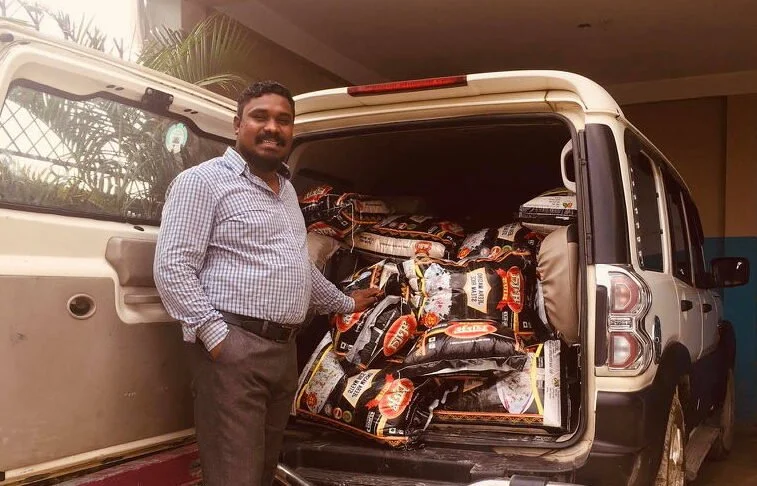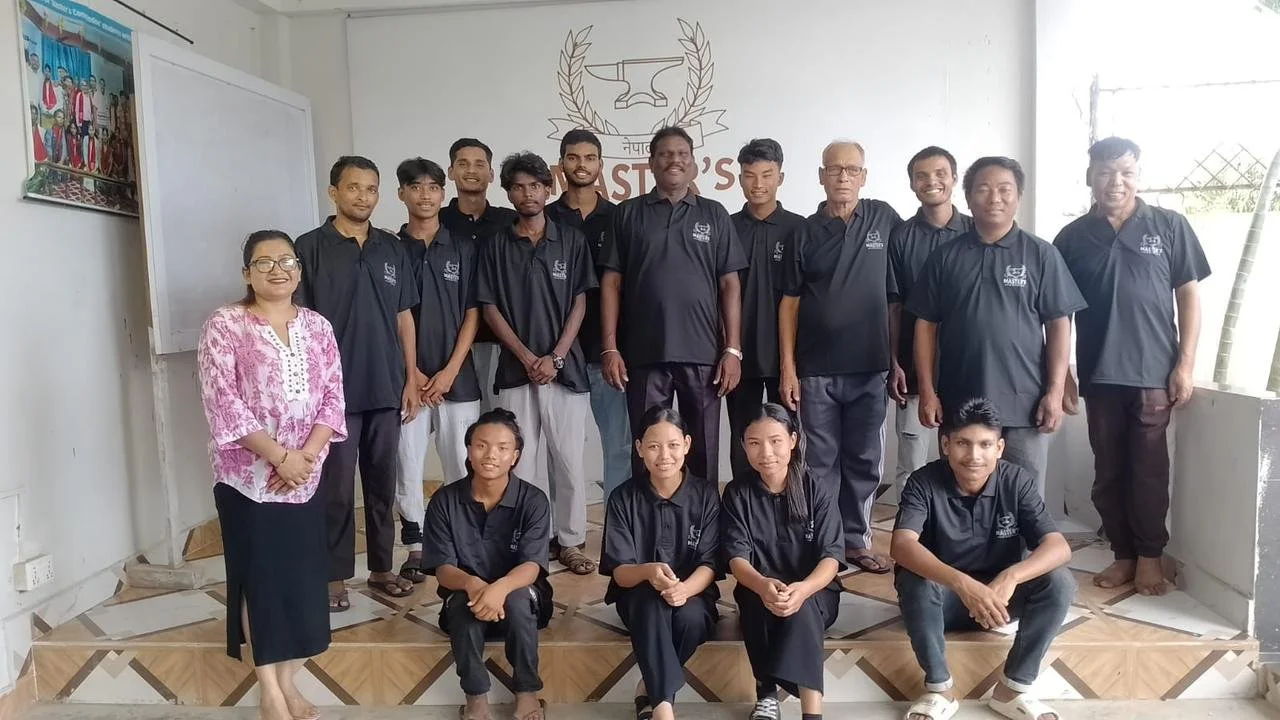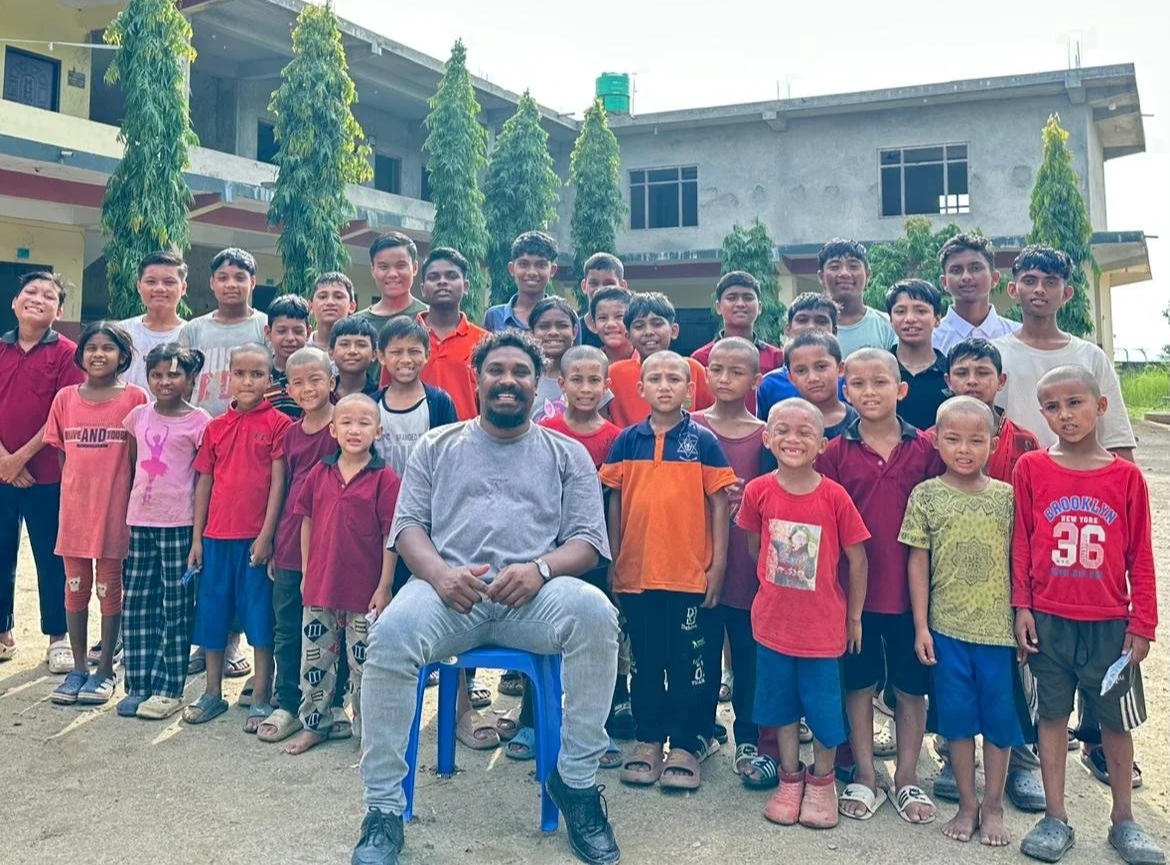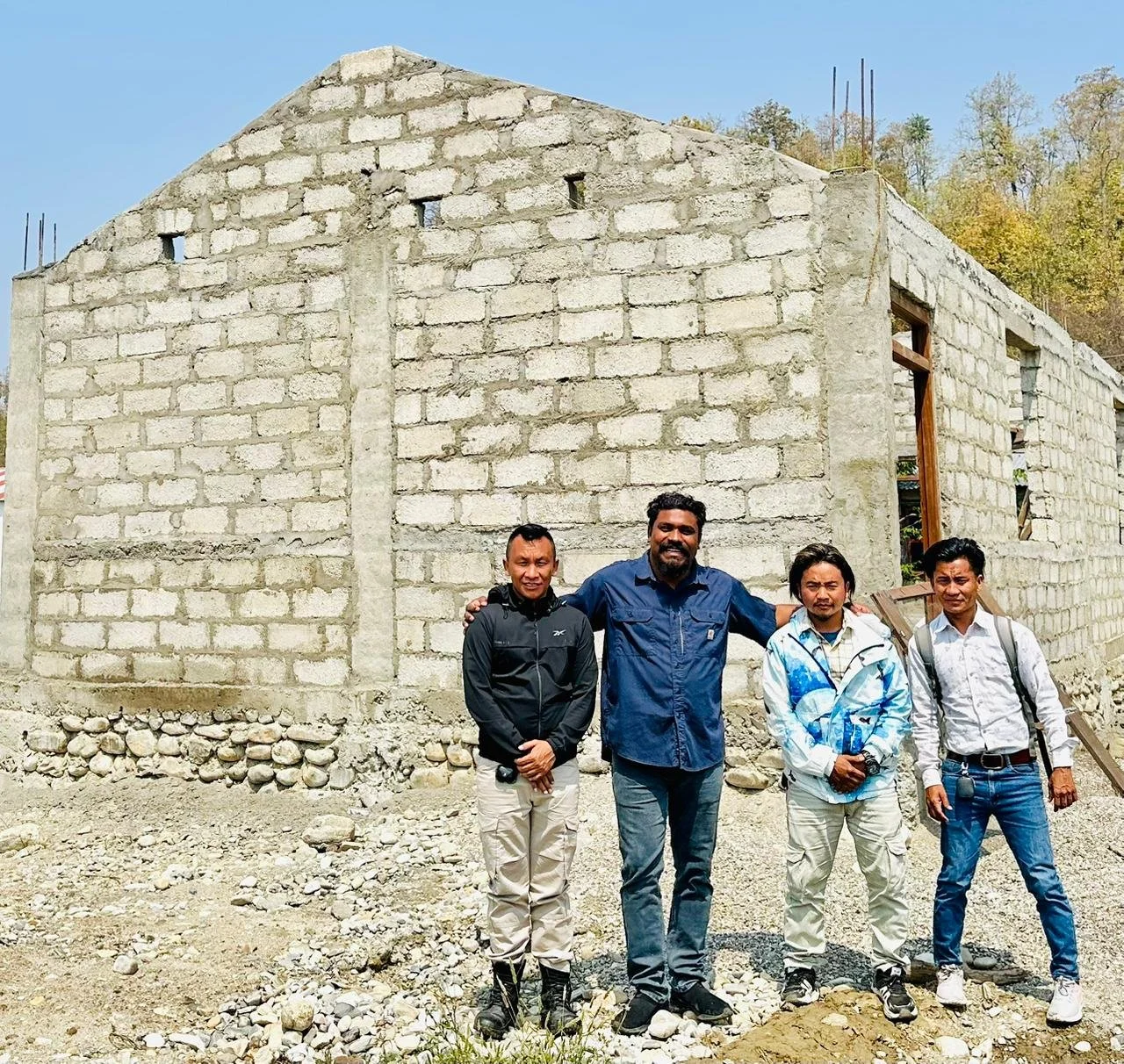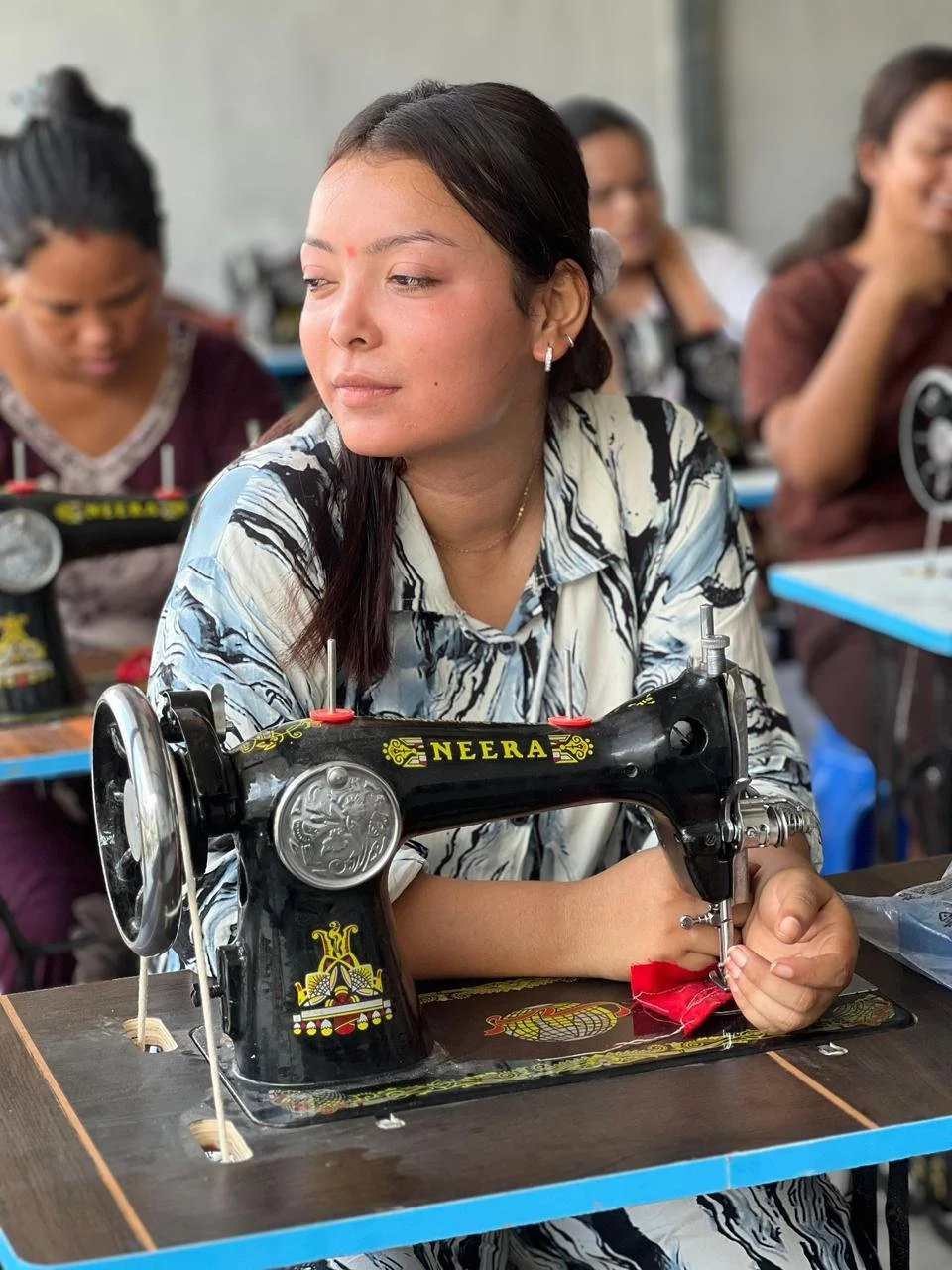Nepal
Mission For Tribes & Nations
Pastor Ruben Basnet & his family
Pastor Ruben with bags of food for the seven villages he serves.
MfTN’s Bible School Students
Pastor Ruben’s adopted children
A photo of one of MfTN’s many church building projects!
Victims of Human Trafficking are rescued and given work skills in MfTN’s Training Center
Feed the Hungry Partners with Mission for Tribes and Nations (MfTN)
MfTN began in Nepal in 2008, founded by Pastor Ruben Rasaili (Basnet) with a clear vision: To reach every unreached tribe with the gospel in South Asia and to plant churches where people can worship in their own local languages. Since its inception, MfTN has planted 137 Smyrna Churches across Nepal and North India.
Feed The Hungry has supported Pastor Ruben for several years, including his work in schools and disaster relief, in response to earthquakes and severe flooding. The country’s climate and geographic location make it prone to natural disasters.The food provided by Feed The Hungry and served at Innovative Academy is all sourced or grown locally through a farming program established to help feed the children and have an income from selling any extra food to the community, which supports the school.
Our partnership with MfTN provides one hot meal a day to more than 600 students across three schools in Nepal, including those at Innovative Academy.
Pastor Ruben Basnet is a dynamic Christian leader in Nepal—a visionary, passionately committed to advancing God’s Kingdom through networks, partnerships, and ministries across the nation. He has carried the gospel to the nations—sharing his testimony and ministry through crusades. In 2021, he and his family moved to Kathmandu with a vision to plant a church. Since then, they have planted four churches in Kathmandu.
What MfTN does:
• Distributing Bibles to new believers & Fire Bibles to pastors free of charge
• Training and equipping pastors through Conferences, Seminars & Gospel & Healing Crusades
• Rescuing & advocating against human trafficking
• Planting churches & constructing church buildings
• Recording and distributing Audio Bibles
• Engaging in media evangelism through video, radio, and digital platforms
• Drilling water wells in remote & tribal villages
• Run a 5-month missionary & church planting training in Nepal: Master’s Commission
• Operating schools & orphanages
About Nepal
Our work in Nepal reaches out to these neglected communities both spiritually and practically. A regular gift could help us reach more Musahar communities, providing essential resources, nutritious food and education for the next generation.
‘Rat Catcher’ or Musahar tribes in Nepal are considered the lowest of the low. Although discrimination was made illegal in 1962, decades of the Nepalese caste system have resulted in a hierarchy deeply woven into some people’s minds. Those at the bottom are considered even lower in status than animals.
Musahars have no official status in Nepalese society. They are not allowed to own anything and often have no documentation. The Musahars are often seen as outcasts: not worthy of attention or help. They are financially poor, without access to education. Hunger is a normal part of life for many Musahars. Statistics on Nepal as a whole do not truly reflect the poverty faced by Musahars. There are very few studies on this unrecognized tribe due to their status in Nepali society. The below gives a picture of the circumstances faced by the Musahari people.
Country Statistics
Population: 29,164,578 (2021)
Below the Poverty Line: 20.27% (2024 est.)
Life Expectancy: 71.4 years (2019)
Literacy Rate: 76.2% (2021)
84% face moderate to extreme food insecurity
About the Children
Under the Age of 14: 29.4% (2021 est.)
Children under 5 Underweight: 18.7% (2020)
Average Years of Schooling: 12.3 years (2020)
Access to water source: 47.4%
Causes of Death
Noncommunicable diseases (NCDs), ischaemic heart disease, stroke, respiratory diseases, diabetes, communicable diseases, tuberculosis, air pollution, and transport injuries.

